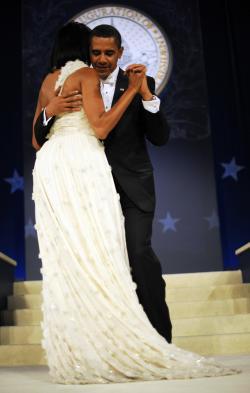Hey girl, if you didn’t know already, Obama really wants your vote.
That was the clear message of a pair of articles that ran over the weekend reporting on the Obama campaign’s efforts to court women this election year, especially in light of the Republican competition’s recent stumbling on contraception and reproductive health. According to the New York Times, Obama’s troops will mail literature to about “one million women in more than a dozen battleground states in three separate versions for mothers, young women and older women” over the next few days, and the month will end with a special “Women’s Week of Action” full of house parties, phone banks, and similar activities.
It’s clear that the female vote—which accounted for 53 percent of the total electorate in 2008—will be crucial in this year’s race; pandering is to be expected. But I and a number of my colleagues at DoubleX can’t help but hear a sour note in the president’s love song to the ladies. Call us cynical, but something about the campaign’s mawkish “women are the future” rhetoric is just a little cringe-inducing.
To be clear, I don’t mean to imply that Obama is some kind of secret misogynist; his respect for women is clearly exemplified in the way he treats his wife and daughters, and, of course, his efforts for women’s health and equal pay are undoubtedly noble. But this is actually part of the problem: the condescension vibe that I’m describing is the cognitive dissonance that results when the earnestness of the president’s message grates against the very cold political reality that “women” are also just a faceless bloc that Obama clearly needs to win a second term. The calculation is so well-known by now (with help from the GOP’s self-destructive intrusion in couple’s sex lives) that warm-and-fuzzy empowerment messages start to sound contrived.
And let’s not forget how the idealistic tenor of the 2008 campaign has gone a little flat in the intervening years. Other identity groups, such as the LGBT community, have realized that the community-organizer-speak of “stakeholders” and “giving voice to everyone” easily and necessarily fades under the pressures of political expediency. At some point, the honeymoon must end, and every group morphs from a special partner deserving of courtship to a special interest requiring management. As Obama’s political dance card fills up for a second round, I suspect that we’ll see decidedly less sweeping of feet, even if women and other groups ultimately take his hand.
